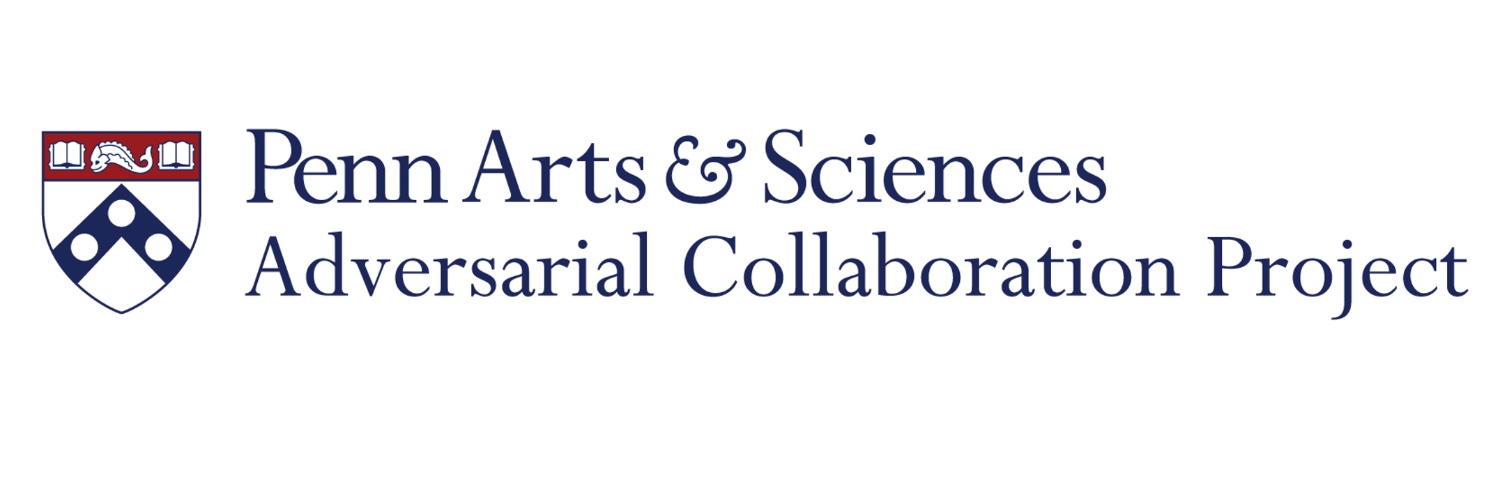
Adversarial Collaboration Project
@AdCollabProject
Making progress on empirical disagreements by supporting scientists willing to engage their intellectual opponents.
On Danny Kahneman and "angry science." @SamanthaJPower @ArabellaPike @BarackObama @JTasioulas @R_Thaler @PiperPerabo @dilipsoman @LiamDelaney2020 @m_sendhil @affectivebrain @StephenESachs @MiaFarrow nytimes.com/2024/04/01/opi…
The role of social media on individuals and society has been a spicy debate. If you have strong opinions on this issue, please sign up to join our project--we can turn this into a global adversarial collaboration! Be ready to prove yourself wrong :)
🚨Call for collaborators 🚨 We are launching a global study to test the causal impact of social media on psychological outcomes (mental health, polarization) around the world. If you want to collaborate with us, fill out this form: nyu.qualtrics.com/jfe/form/SV_6y… Please retweet!
Insights from 29 scholars who have completed adversarial collaborations (ACs): 1. Humility is a must 2. ACs are hard but produce high quality science 3. Participating in ACs may shake your faith in non-AC science By @calvinisch2 @PTetlock @ImHardcory: link.springer.com/article/10.100…

Excited to explore whether there is "too much" intellectual humility in the context of conspiracy belief with one of my favorite colleagues (turned research adversary🙃)! Thanks to UPenn's Adversarial Collaboration Project for the opportunity.
An honest reflection on adversarial collaborations by @APA_Monitor: They are hard. Current incentives in science are misaligned w/adcollabs. But they are less intimidating than they seem. Adversaries become friendlier, & teams mutually assimilate new data: apa.org/monitor/2025/0…
1. In 2003, Kahneman published an article in American Psychologist describing the magic of collaborating with Tversky but also lamenting how current modes of scientific disagreement were unnecessarily hostile and unproductive. He hoped for a better way: Adversarial Collaborations
🚨Out in Psych Sci🚨 Prompting accuracy can increase news sharing quality -but is this true for those on the political right? Our ADVERSARIAL COLLABORATION finds: ➡️Acc prompts increase sharing quality of Republicans ➡️Some evidence of greater efficacy for those on left v right
Pairing of ideologically opposed academics should become sector norm when reseachers disagree, says @AdCollabProject leader @ImHardcory timeshighereducation.com/news/adversari…
Our first adcollab project to make it to preprint! We explored ideological differences in cognitive rigidity. As often will be the case with adcollabs, we found that context matters. Broad claims about who is more rigid are probably too broad.
This was my first time serving as a moderator for an adversarial collaboration, and the whole process was such a treat. We examined three major political psychology theories. See below for what we studied and found! psyarxiv.com/4wmx2
This was my first time serving as a moderator for an adversarial collaboration, and the whole process was such a treat. We examined three major political psychology theories. See below for what we studied and found! psyarxiv.com/4wmx2
1. Scientific institutions incentivize scholars to forward excessively broad and superficially novel claims that appear to contradict peers’ claims, creating unnecessary conflict, confusion, and inefficiency in the scientific discovery process: iai.tv/articles/auid-…
Misinfo researchers, what do you see as the major controversies / points of disagreement within the field currently? Plz share widely to see what we come up with - thanks!
Adversarial Collaborations: when two or more researchers with opposing views work together to answer a common question. Such a cool idea, with support coming from @AdCollabProject. Not sure what this would look like for quant marketing but share ideas if you them.
1. Science often contradicts other science. When this happens, disputant scholars tend to work separately, designing their own new studies to launch at their opponents. These new studies rarely persuade the other side, and contradictory claims live in on for years or decades.
Anyone interested in representing the "yes" side in an adversarial collaboration around whether corrections lead to backfire effects? If so, lmk - could be fun and illuminating! (I'm really into adcollabs now thanks to great experiences run by @ImHardcory @PTetlock)